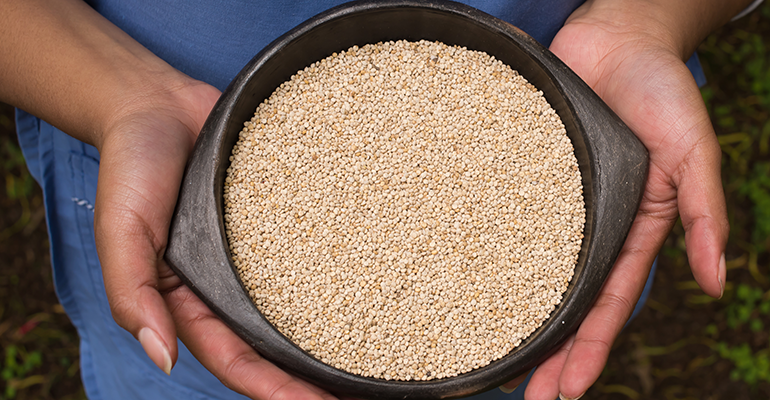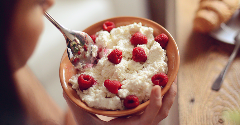News
Peruvian healthy brand keeps prices low with artificial intelligence
12 May 2023
Nutri Co uses artificial intelligence (AI) to reduce product formulation time, allowing it to offer healthy products with local ingredients at a low cost, serving the price-sensitive Peruvian market.
Founded in 2017, Nutri Co, based in Lima, has a portfolio of 47 products including shakes, energy bars, cereals, oats, plant-based meats, cookies, and crackers.

According to Carlos Noceda, co-founder and co-CEO, price is always at the forefront of Nutri Co’s objective, with one of the prime considerations when entering a category “is to verify where we are among the premium leaders.
“We seek to have a similar or better proposal to them […] but with a 40% or 50% lower price. That is where we position ourselves”, he explains.
Nutri Co says it can drastically undercut the big food firms because of its new product development process. Nutri Co’s AI algorithm, dubbed Virgilio, selects the optimal combinations of ingredients to suggest a recipe or formula in a process that takes minutes instead of the industry norm of six to 12 months.
“Thanks to our technology we can do it in four months, that sets us apart and helps us to launch more and more things,” says fellow founder and CEO Daniel Núñez.
Local ingredients
The company also uses Andean ingredients that are familiar and locally sourced. Nutri Co’s line of shakes and smoothies for example contain a mixture of Peruvian-inspired ingredients such as kichiwa (amaranth), quinoa, cañihua (a grain related to quinoa) and tarwi (lupin).
 Pictured: Quinoa © AdobeStock/goldnetz
Pictured: Quinoa © AdobeStock/goldnetz
These products contain high levels of protein, minerals and vitamins; and are produced by the high Andean communities that Nutri Co has worked with for five years.
“An objective for us is that more and more Peruvians buy healthy products, without dairy products, without animal products,” says Noceda, speaking to Peruvian national El Comercio.
“And consequently, they are eco-friendly. We want there to be more brands and thus be able to compete with the 95% of the market that have traditional products.”
Nutri Co’s expansion to the US, Colombia, and Chile
Looking ahead, the entrepreneurs have set their sights on expansion, with the US, Colombia and "probably some Latin American country," under consideration for 2024.
Commenting on the Chilean markets, where they hope to have their products available in 50-70 supermarkets and around 100 to 200 convenience stores by the end of the year, Noceda says, “although it is not a market that is considered large in Latin America, its modern channel represents 60% of the food market. In Peru, this is the opposite: the modern channel represents 30%, nothing more.”
"So, for us, Chile is very attractive, because there is a very different consumer culture and it occurs in the modern channel, where we are specialists," Nuñez adds.
Related news

Empowering innovation in fortification and colouration
13 Nov 2025
Divi’s Nutraceuticals offers a large portfolio of innovative, high-quality ingredients for foods, beverages, and supplements, with bespoke solutions and expert support for product success.
Read more
Danone highlights digestive health as potential ‘tipping point’ for food industry
13 Nov 2025
Danone is betting on a food industry “tipping point” that will bloat the market for healthy products, particularly those related to gut health.
Read more
Standing Ovation and Bel scale up casein production from dairy co-products
11 Nov 2025
Foodtech company Standing Ovation has partnered with cheese specialist Bel Group to manufacture dairy serums for industrial-scale casein production via precision fermentation.
Read more
New UPF standard hoped to offer consumers ‘coherence and clarity’
10 Nov 2025
Ingredients companies are being urged to enter “a new era of partnership and innovation” following the launch of the industry’s first non-UPF verification scheme.
Read more
Whistleblowers accuse UK meat industry of promoting cheap, unsustainable supply
7 Nov 2025
An anonymous group of industry insiders has accused the UK’s biggest food companies of systematically driving down meat quality and welfare standards.
Read more
Cottage cheese makes a comeback as consumers call for cleaner labels
6 Nov 2025
From ice cream to dips and ready meals, cottage cheese is experiencing a renaissance as a high-protein, clean ingredient for health-conscious consumers.
Read more
Bord Bia presents Irish dairy ingredient suppliers at Fi Europe
6 Nov 2025
Dairygold Co-operative Society, The Carbery Group, and Ornua Co-operative: Meet with sustainable producers of Irish dairy ingredients at Food ingredients Europe 2025, Hall 7.2 Stand M18.
Read more
Faravelli at Fi Europe: Showcasing FARA® functional solutions for food and nutra
28 Oct 2025
At Fi Europe 2025 in Paris (stand 72M39), Faravelli showcases FARA® Customized Functional Solutions and a wide ingredient portfolio for food and nutra – delivering quality, innovation, and expertise.
Read more
Agrigum Redefined FIBER
27 Oct 2025
Agrigum has transformed gum acacia into a natural, science-backed fibre that supports gut health, sustainability, and innovation across global food and nutrition applications.
Read more
Expanding boundaries in food & beverage innovation
23 Oct 2025
IMCD and FrieslandCampina Professional expand partnership to deliver Kievit® across EMEA, enabling brands to enhance quality and accelerate time-to-market for tomorrow’s food & beverage creations.
Read more